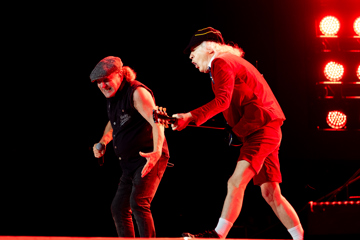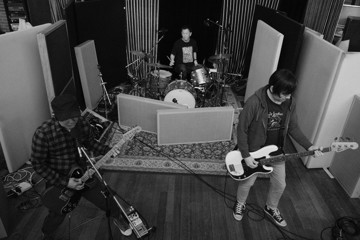No
“If any part of the fact that we got nominated for an Oscar, which is this global thing, meant that because of this my film is opening in Australia, then, what a fantastic thing. It’s beautiful!”
“If any part of the fact that we got nominated for an Oscar, which is this global thing, meant that because of this my film is opening in Australia, then, what a fantastic thing. It's beautiful!” Pablo Larraín's No has travelled a long way from its native Chile; riding a leading turn from a beautiful global film star (Gael García Bernal), a cute retro-video hitch (it's shot on 1980s VHS-tape 'technology'), and an 'inspirational' people-powered narrative (a chronicle of the 1988 plebiscite that deposed Chilean dictator Augusto Pinochet from power) all the way to Hollywood.
It scored a nomination for the Best Foreign Language Film at this year's Oscars, marking a crossover moment for the career of Chile's most promising young auteur. “It's like going to an aliens' party,” laughs Larraín, 36, from his house in Santiago. “You can have a good time, but it feels really weird to be there, and you never fit in.”
No marks the third picture in Larraín's 'Pinochet trilogy', following 2008's Tony Manero (set in 1978, and filled with killing and references to Saturday Night Fever) and 2010's Post-Mortem (which follows morgue workers dealing with the bodies piling up during the 1973 military coup), spanning the 15 years of the dictatorship. “I asked all these questions to myself for so many years, so I made three films about it to try and find some answers. And I can tell you, frustratingly, that you won't find any answers,” says Larraín. “My movies are never something that could be used in classes, to show people what happened in my country. That's not what I'm looking for. I'm just trying to find my own ghosts. There's so much information about these things that have happened, you just have to get away from it. A ghost is a ghost. It just haunts you.”
With No, that meant shooting on U-matic video, using fuzzy VHS wobbles old like chillwave music employs claggy tape-sheen. “We operated on this idea that if people were watching this film 40 years from now, they wouldn't realise that this film hadn't been made in the '80s,” Larraín says, of how a problem-solving technical solution that became a spiritual motif. “At least 30% of the scenes in the film use this real video footage from the time. If we were just going to shoot all our new stuff on digital video, it would've been a disaster! We had to make it so people couldn't see the difference between what we shot, and what was shot in the '80s.”
The film sees Bernal playing an advertising guru charged with leading the 'NO' campaign in an election to re-elect Pinochet; considered a losing cause in a vote with no credibility. “Most people know how Pinochet got into power, but very few people know how he got out of power,” says Larraín. “I think he might be the only dictator ever, in human history, that lost their power to the democratic process. They used the system that he imposed on this country to get him out of power, and that's unheard of. I'm not an epic kind of guy, I'm not a big storyteller, but this is an epic story. And it wasn't created by some screenwriter, it was written by the people of this country.”
No is in cinemas now.







